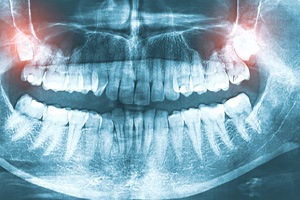

Dear Patient,
Effective 07/26/2024 All Dental Watertown at 21 Main Street, Watertown, MA will be closing. We are sorry for any inconvenience this causes. We have greatly valued being part of the Watertown community over the years.
Your continued care is our priority, and we have the following options to continue your dental care. Dr. Andrey Mazo, Dental Director, and his team will be supporting you during the transition. All calls to the Watertown office after 7/26/24 will be forwarded to All Dental Westborough so we can answer questions, forward records, and provide support. You can also call the Westborough office directly at (508) 870-1911. Our team is fluent in Russian and English.
For our patients with Mass Heatlh
If you are a Mass Health patient, you can be seen at the BU Dental School. BU Dental School has experienced dentists, hygienists, and students providing a wide range of patient services. As a new patient, you can visit their website for more information.
Boston University Henry M. Goldman School of Dental Medicine 635 Albany Street, Boston, MA 02118 617-358-8310
You can also call the MASSHEALTH Customer Service line at 800-207-5019. A representative can provide you with local offices accepting new patients. Once you are ready to see a new dentist, you can request your records and x-rays to be forwarded. There will be no charge for this service. We keep your records securely stored for 8 years as required and you can request them at any time. There is no immediate rush or concern. Please send email request for records to AllDentalWatertown@42northdental.com or call us at 508-870-1911
For all other patients
For all other patients, we have two convenient locations for you: All Dental Westborough and Gentle Dental Belmont.
Our All Dental Westborough location is at 76 Otis Street, Westborough, MA and offers all phases of dental care from general services to more specialized care. Our All Dental Westborough location has an excellent team of doctors and will continue to treat your dental needs. Dr. Andrey Mazo will continue to practice in the Westborough location, where he is Dental Director. He is joined by dentists Dr. Parvathi Nadimpalli, Dr. Houman Ghanbari, and Dr. Perio Martin Urban, a Periodontist. Dr. Alexander Verbitsky will also be transferring to this office from Watertown.
Gentle Dental Belmont, which is less than 10 minutes away at 250 Trapelo Road, Belmont MA, is also accepting patients from All Dental Watertown. Our Gentle Dental Belmont location is at 250 Trapelo Road in Belmont and offers all phases of dental care from general services to more specialized care. Dental Director, Dr. Lilia Cucerov has been practicing dentistry for over thirty years and is fluent in Russian and English. Dr. Cucerov is joined by Dr. Fady Eid, Periodontist Dr. Abdullah Othman, and Orthodontist Dr. Shaima Tabari.
All Dental and Gentle Dental are both 42 North Dental-supported practices. This means the experience will be seamless for patients with records and x-rays immediately available with no lapse in treatment. If you choose another dentist, please use this form to request your records once you are ready for a next appointment.
For our Russian-Speaking patients: The front desk in All Dental Westborough speaks Russian and English should you need help making an appointment at either location. Please note that the dentist in Gentle Dental Belmont speaks Russian and English but the front desk does not.
Thank you again for choosing us for your dental care. We appreciate getting to know you and your families and wish you good dental health in the future.
Sincerely,
All Dental








